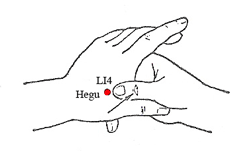 Pregnant women in their final trimester start getting anxious about labor and find themselves looking for indications of labor during the trimester’s later stages. Dilation and thinning out of the cervix are considered the most common signs of early labor, which usually occur during the first stage of labor. For some women, signs of labor can appear a lot earlier than the due date of delivery, while for others these signs might not appear altogether even after forty-two weeks of pregnancy.
Pregnant women in their final trimester start getting anxious about labor and find themselves looking for indications of labor during the trimester’s later stages. Dilation and thinning out of the cervix are considered the most common signs of early labor, which usually occur during the first stage of labor. For some women, signs of labor can appear a lot earlier than the due date of delivery, while for others these signs might not appear altogether even after forty-two weeks of pregnancy.
Signs of Early Labor
1. Lightening
You will start feeling a lightening of the load on your diaphragm as the baby descends to the pelvis area. This would make it easy for you to breathe and would be a sign that labor is imminent. In addition to not being short of breath, you will start feeling an increased need to visit the bathroom since your bladder is now under the pressure of the baby’s weight. This change will be noticed more by your family members than by yourself.
2. Bloody Show
Discharge of blood-stained mucus is among the signs of early labor that pregnant women seldom notice. This mucus is basically a protective covering that forms over the opening of the cervix during pregnancy and prevents any bacteria from getting access to the uterus. As pregnancy enters into the last stage and the cervix begins to loosen up, this mucus covering is removed from the body. The discharge of mucus covering can occur at any time before labor, and usually its color is pink or blood red.
3. Fluid Leaking
The rupture of the amniotic sac and the subsequent leakage of the amniotic fluid are also signs of the onset of labor. In simple terms, this process is referred to as “water breaking.” Usually this happens while the expecting mom is in her home or in her bed. You will feel a sudden gush of fluid leaking from your vagina. This fluid can be either the amniotic fluid, which is odorless, or urine, which might leak because of the uterus’s pressure on your bladder. Contact your doctor immediately if the leaking fluid is anything other than urine.
4. Feeling Energetic and Emotional
A particularly noticeable sign of early labor is to start feeling energetic. You will become more motivated to complete the tasks that you have delayed so far, and you will want to do everything as quickly as possible. This sudden burst of energy is a symptom that delivery day is fast approaching, so you should try not to over exert yourself. In addition to being energetic, crying without reason and having emotional mood swings are other common indications of labor, which are usually caused by the hormonal changes taking place in your body.
5. Effacement
Effacement or thinning of the cervix is the most common sign of early labor. This usually happens in the last month of pregnancy and signals the readiness of the uterus for delivery. The reason for this is that a thin cervix gets dilated more easily than a thick one. Measurement of effacement is done only by medical professionals. You can ask your healthcare provider to check your degree of effacement in the last two months of pregnancy.
6. Dilation
Dilation refers to the opening of the cervix right before the process of childbirth. Measurement of dilation is done usually by a healthcare provider while performing an internal pelvic exam either in centimeters or in fingers. The maximum dilation at which a pregnant woman is considered ready to give birth is ten centimeters, while four centimeters is the dilation limit for early labor, after which the progression of labor intensifies and starts gathering pace.
7. Frequent Contractions
The frequency and intensity of contractions increases and becomes a lot more pronounced during early labor. By the time early labor finishes, you will be having a contraction every five minutes, and the contraction would last for about a minute. The frequency of contractions can vary from person to person, with some moms having much more frequent contractions that are shorter and less intense.
For women experiencing normal labor, these early contractions are not much of a problem. In some cases, however, the process of dilation takes place at a slower rate than is expected, and the women feel a lot of pain during their early labor contractions.
To learn more about signs of early labor, watch the video below:
How to Get Through Early Labor
If you are having your first baby, the time duration for your early labor can lie anywhere in between six to twelve hours. This time span will be markedly shorter for your next delivery.
The following tips can help you in getting through early labor.
- Go for a bath or shower.
- Put heat or ice packs on your lower back.
- Divert your attention. Listen to comforting music or go for a stroll in the park.
- Rest as much as possible. Try to get some sleep. Use birth balls or cushions if you are having trouble sleeping because of contractions.
- Keep on drinking water and eating food. Eat pasta, bread or potatoes, all of which are rich in carbohydrates but release the energy slowly.
- Empty your bladder. The emptier your bladder is, the easier it would be for your baby to come out of the uterus. If you don’t urinate frequently, your bladder will be full, making it hard for the baby to descend.






